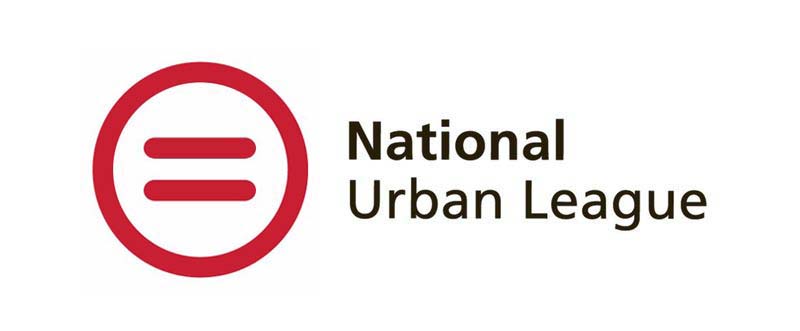When you think of a coach, you probably think of an athletic coach, someone who motivates players to perform at their peak. But other types of coaches can help motivate you to perform at your peak outside of sports.
One of those kinds of coaches is a career coach. And whether or not you’ve heard the term, you may wonder what is a career coach, what do they do, and do I need one? How will they motivate me to perform in my career? Is there exercise involved?
Well, it depends on the career coach! And this guide will help you understand what a career coach is, what they can do for your career, and how to identify if you’ll benefit from career coaching.
What Is a Career Coach?
Heather Starr, career coach and resume writer, says that “career coach” describes a wide variety of career service professionals, including career advisor, career consultant, career counselor, and, yes, career coach. “These individuals work alongside their clients to help them work towards achieving career related-goals, whether it be clarifying a career direction, executing a job search, or developing application and related materials.”
>>MORE: What Is Career Planning?
Career coach Tracy Capozzoli Ed.S., MS, adds, “A career coach is a professional who partners with you to identify your work interests, skills, and work values (or motivators). They work to empower their clients to learn about the world of work, industries, and occupations and how this may relate to career advancement, career pivots, career changes, and job searching.”

Resume Writing Masterclass
Discover the tips and tricks for creating a resume that stands out in our free masterclass, and earn how to describe why you're the right person for the job.
Avg. Time: 5-6 hours
Skills you’ll build: Resume writing, personal branding, professional summary, keywords, transferable skills
So, think of a career coach as a partner in your professional development and growth. With the right career coaching, you can maximize your career potential however you define it.
Career Coach vs. Career Counselor
As noted above, “career coach” is a catch-all term. However, there are some minor differences between a career coach and a career counselor, and one may be more suited to your needs than others.
For example, some career counselors may also have a degree or background in psychology, social work, or counseling. So, in addition to helping you figure out your next career steps, they can also help you identify any other personal issues that might be interfering with your career goals. And as Starr points out, career coaching is often a short-term engagement, while career counseling may take longer, depending on your situation.
What Does a Career Coach Do?
Career coaches have a wide variety of backgrounds and experiences, so there’s no one-size-fits-all career coaching solution. However, all career coaches have one thing in common: they want to help you figure out what you need to do to have the career you want.
“Career coaches come from a variety of professional and educational backgrounds and professional experiences from human resources to career counseling to expertise in a specific industry or field,” says Capozzoli. “Through partnership, guidance, and education, they help clients explore career development pathways to help them reach their career goals.”
Starr points out that “some coaches help their clients develop and implement a plan to hone their leadership or other skills to progress within their current roles. Some specialize in career transitions, whereas others specialize in working with a particular kind of client, such as a new graduate or C-Suite executive. Coaches may also specialize by industry, based on their own personal professional experience.”
Some of the many items a career coach might help you with include:
- Exploring what career or careers interest you
- Creating a professional brand
- Writing and revising your resume
- Techniques to help you conduct an effective job search
- Developing and maintaining motivation
- Interview preparation
- Networking techniques
- Tips and guidance for negotiating a salary and job offer
- Cover letter writing
- Career, personality, and strength testing and evaluation
- Evaluating potential employers
Building Your Personal Brand
Learn how to develop and maintain your personal brand in this free course from Ashurst. Explore what a brand is and how it can impact your job search.
Avg. Time: 4.5-6 hours
Skills you’ll build: Personal brand, reputation management, online presence, LinkedIn
What a Career Coach Doesn’t Do
While a career coach can help you accomplish your professional goals, it’s important to recognize they can’t wave a magic wand and “fix” things. Working with a career coach also means understanding what they cannot do for you.
Solve Your Problems
A career coach won’t solve your career problems for you. They can give you objective advice, be a friendly ear to vent to, and offer you options, but ultimately, they can’t jump in and fix any career issues you may be experiencing.
Find You a Job
Sometimes people work with a career coach thinking the coach will get them a job. However, that’s not the case. While the career coaching can help with your cover letter and resume and prepare you for interviews, it’s up to you to impress the hiring manager to land the job.

Interview Success
Get ready for your next interview in this free course from BCLP. Practice video interviewing, taking an assessment, and more.
Avg. Time: 4.5-6 hours
Skills you’ll build: Video interview, public speaking, problem-solving, time management, attention to detail
Do All the Work
A large part of working with a career coach is opening up and doing hard work. If you’re not ready for that part of the experience, you may not be ready for career coaching.
For example, many coaches will give you advice on improving your networking efforts to help you get your foot in the door at your desired company or industry. But, they can’t do the networking for you! If you decide you don’t want to network at all, you may not get what you want out of the arrangement.
What to Expect From Career Coaching
A career coach can provide you with the objective, unbiased professional support and feedback you need to help make your career plans a reality. That can include:
- Encouragement: for when you’re feeling down
- Accountability: to ensure you do what you’re supposed to do
- Focus: to keep you from going down a rabbit hole
- Structure: to act as a guide and help you structure things
How Do I Know if I Need Career Coaching?
Not sure if you need a career coach? “One way to gauge this is to consider if you’re meeting your professional career goals on your own,” says Starr. “If you know what direction you want your career to take and are making forward momentum, you’re probably not in need of career coaching. However if you feel stuck and want unbiased assistance, a coach can be an excellent resource.”
But feeling “stuck” can feel like a lot of things. Here’s what to look out for to help you decide if you’d benefit from career coaching.
You Feel Lost in Your Career
Sometimes the career you thought you wanted isn’t what you thought it would be. Or, it’s everything you thought it would be, but it’s just not working for you. Maybe something isn’t quite right at work, but you can’t put your finger on it.
You Are Extraordinary
Uncover the reasons for imposter syndrome and learn how to over come it in this free course from Ashurst. Explore why this happens and learn how to handle these feelings.
Avg. Time: 3-5 hours
Skills you’ll build: Identifying feelings and causes of imposter syndrome, self-awareness, identifying strengths and success
If you’re feeling lost at work or no longer connected with the job, a career coach can help you sort through things and figure out what you can do to improve your professional situation. It could be anything from finding more personal satisfaction in your work to having your work match with and support your life values, says Capozzoli.
Your Job Search Has Stalled
It takes time to find a new job — approximately five months. But that’s an average, so if your job search has gone on for a little longer than that, don’t despair. However, if your job search is taking a lot longer than average, you may want to consult with a career coach to help you identify what may be blocking your job search.
“Whether it’s your resume that isn’t getting you an interview or your interviewers aren’t getting you offers,” notes Capozzoli, a coach can help you get to the bottom of things and make the necessary changes.
You’re Starting Your Career Journey
You may be closing in on your degree, but after four or so years of study, you may not have a clear idea of what career you want to pursue. Sure, you majored in “business,” but there’s a lot you can do with it, and you don’t know where to start.
If you find yourself saying, “I don’t know what job I want,” a career coach can help you sort through all the possibilities, identify what might be a good match for you, then figure out how to get started.
>>MORE: What Is Career Readiness?
What to Look for in a Career Coach
Because your career has a significant impact on your life, Starr and Capozzoli stress that connecting with someone you enjoy working with and who listens to you is crucial.
Starr says people should look for a career coach who will actively listen to them and help them identify their needs. And Capozzoli advises anyone considering working with a coach to “Reach out to prospective coaches and ask for informational sessions. Most coaches provide a free consultation to determine professional fit. Take them up on this offer to see if they are the coach for you.”
Don’t feel you have to work with the first coach you meet or connect with. Shop around and talk with a few prospective coaches before hiring one.
Where to Find a Career Coach
“Generally speaking, it’s advisable to seek out those with a professional certification from a recognized accreditation body,” advises Starr. “The tricky thing with career coaching is that it’s an unregulated field and anyone can call themselves a career coach.”
“Start by asking your personal network for coaches they may have worked with,” says Capozzoli. “Personal references and experience can go a long way when determining if you want to work with someone. Also explore and research career coaches in your area or by expertise via LinkedIn. Determine if a coach has a website for further review of their expertise and client recommendations.”
Many of the credentialing bodies that offer career coach certifications also have professional directories to help you identify the career coach who suits your needs:
- Professional Association of Resume Writers and Career Coaches (PARW/CC)
- International Coaching Federation (ICF)
- National Career Development Association (NCDA)
- Center for Credentialing & Education
- Career Thought Leaders
- National Resume Writers’ Association (NRWA)
Some sites, like Noomii, are strictly professional directories and don’t offer any kind of career coach certifications or credentials.
Find Your Direction
One other fantastic way to figure out what direction to take your career is by completing a Forage virtual job simulation. They’re free and allow you to test drive all sorts of jobs from software engineering and accounting to life sciences and project management. Try one out today!
Image credit: Canva

